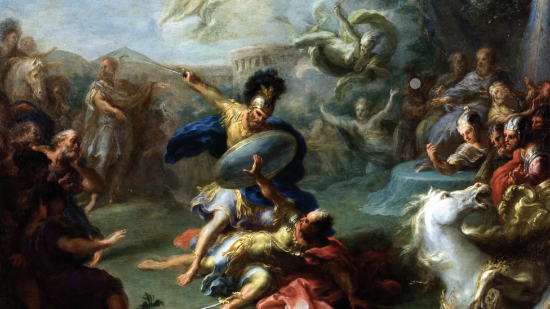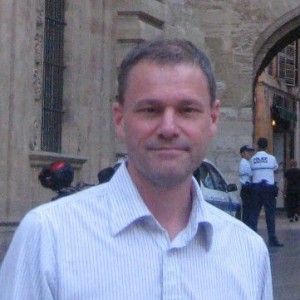

The 12th book of Virgil’s Aeneid – A Close Reading, with Recent Scholarship
November 17, 2020 @ 5:30 pm - 7:00 pm
| FreeThis seminar will offer participants the chance to reconnect with one of the ancient world’s most famous poems, Virgil’s classic epic on the adventures of Aeneas. The seminar’s participants are asked to read (or to refamiliarize themselves with) the epic in its entirety. But the seminar itself will focus largely (though not exclusively) on the poem’s final book, where many of the work’s big issues come to a head, but where few if any of these issues are straightforwardly and/or satisfactorily ‘resolved’. A clear sense of the poem’s ending as it should always comes from readers working from clues and adducing resolutions, and from their choosing to value some things over others, rather than from anything ineluctable and explicit in the text itself.
It is this problem of the conclusion that ends without neatly resolving that we will dive into in the seminar, but to do this we will need to have a good sense of the whole. We will look at how the poem’s final ambiguities have been dealt with in the past, and the very different ‘Virgils’ and ‘Aeneids’ that these efforts have produced. But instead of attempting to settle the question of how we should think about this poem’s end (as if to ‘locate’ the proper solution), we will approach the epic’s difficult finale with a different set of questions in mind: Why does Virgil leave us hanging the way he does? Why write the ending this way, leaving us with so much to do? What do the endings we adduce, no two of which are ever quite the same, tell us about our politics, our values, our (American) selves?
The seminar’s leader, Kirk Freudenburg, recently agreed to write a commentary on the last book of the Aeneid, so the seminar will serve as a brainstorming expedition, fishing for new ideas and perspectives. To help the cause, the seminar’s participants are, above all, encouraged to think for themselves. The several articles that have been assigned in addition to the poem itself are intended to help orient readers in the matter of recent scholarship, not to lock out other possibilities.
This seminar will be conducted online. Readings will be provided in advance of the seminar, and all participants are asked to complete the readings and to participate in the discussion.
Our Professor: Kirk Freudenburg, Brooks and Suzanne Ragen Professor of Classics, Yale University
Kirk Freudenburg received his BA from Valparaiso University, and an MA in Classics from Washington University in St. Louis. He took his PhD from the University of Wisconsin, where he wrote a dissertation under the direction of Denis Feeney.
Before coming to Yale he taught at Kent State University, Ohio State University and the University of Illinois. At Ohio State he was Associate Dean of the Humanities and at Illinois he was Chair of the Department of Classics. His research has long focused on the social life of Roman letters, especially on the unique cultural encodings that structure and inform Roman ideas of poetry, and the practical implementation of those ideas in specific poetic forms, especially satire.
His main publications include: The Walking Muse: Horace on the Theory of Satire (Princeton, 1993), Satires of Rome: Threatening Poses from Lucilius to Juvenal (Cambridge, 2001), the Cambridge Companion to Roman Satire (Cambridge, 2005), Oxford Readings in Classical Studies: Horace’s Satires and Epistles (Oxford University Press, 2009), and the Cambridge Companion to the Age of Nero (Cambridge, 2017), co-edited with Shadi Bartsch and Cedric Littlewood. Currently he is writing a commentary on the second book of Horace’s Sermones for the Cambridge Green and Yellows.
Registration is now open! Register by filling out the brief form below.
